A journalistic account of the industry published in England argues that the industry in Ukraine is in fact a form of emotional prostitution.
Shaun Walker’s article in the Guardian had one of those overly dramatic headlines British newspapers are famous for promising to reveal, The men who go to Ukraine looking for a wife then fly home alone and broke.
The article focuses on how the recent political conflict in Ukraine has encouraged women to get involved in the industry in order to supplement their lowered incomes.
He even published a short book Odessa Dreams for those interested in a larger account of how he came to these conclusions based upon his time in Odessa following a romance tour.
However, many sociologists argue that relationships are complicated and that economic interests are always at play within our intimate relationships, troubling ideas about what constitutes authentic emotional engagements.
In the The Purchase of Intimacy Princeton sociologist, Viviana Zelizer, argues that many people consider the economic realm and the intimate realms of our lives as completely separate from one another, and in fact, hostile to each other.
A narrative exists in society that economic considerations make intimate relationships impure and questionable.
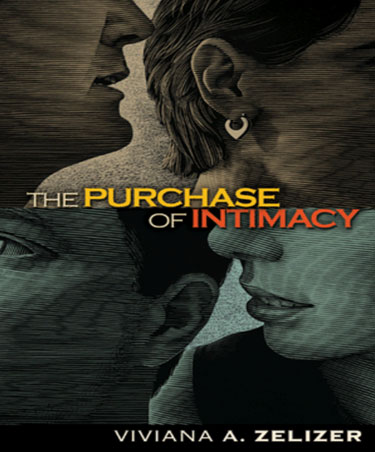
Many men involved in this industry come from a separate and hostile worlds viewpoint when thinking about the premium international dating industry, and intimate relationships in general.
In the United States people generally have the misconception that love and money do not mix.
This notion is deeply ingrained into American culture. It is the primary plot device of uncounted millions of novels and news stories.
It is the topic of some of the biggest feature films in Hollywood history like, Titanic, Sabrina, and Grease to name just a few.
And of course, the Beatles classic, Can’t Buy Me Love, is staple of oldies stations and on the playlists of a lot of people who were not even born when the Beatles broke up.
However, if we examine the history of marriage the intermingling of economic considerations within intimate relationships has always been present and much more forthright.
In her History of Marriage Stephanie Coontz explains that…
For most of history, it was inconceivable that people would choose their mates on the basis of something as fragile and irrational as love and then focus all their sexual, intimate, and altruistic desires on the resulting marriage. In fact, many historians, sociologists, and anthropologists used to think romantic love was a recent Western invention.
Stephanie Coontz from History of Marriage
Therefore, Zelizer argues instead for her concept of ‘connected lives.’
She introduces the concept by explaining that…
In the broadest terms, people create connected lives by differentiating their multiple social ties from each other, marking boundaries between those different ties by means of everyday practices, sustaining those ties through joint activities (including economic activities), but constantly negotiating the exact content of important social ties.
Most people understand that this role playing happens ever day.
Everyone is a child, a student, a teacher, a lover, and a friend.
Often these roles comingle and overlap and the choice we make about which role to choose in a given situation is often complicated and important to the outcome of a given social interaction, because our choices do not occur in a vacuum but in simultaneously with other individuals.
Each individual is constantly observing the other individuals and adjusting their role based on those observations.
Zelizer notes that, In order to understand these complicated processes, we must begin with three facts that we all experience as human beings but have trouble talking about.
First, we construct the most coherent set of social worlds we can by negotiating and adopting meaningful ties to other people, but differentiating sharply among the rights, obligations, transactions, and meanings that belong to different ties.
Essentially, Zelizer explains that the process is difficult, because it involves so many factors that are both psychological and social.
This is true in any situation, but nowhere in the normal flow of the life process is it more fraught with potential dangers and possibilities as in the case of courtship, because the nature of courtship is both deeply personal and by its very nature life altering.
Second, we mark differences between ties with distinctive names, symbols, practices, and media of exchange; despite some similarities in emotional intensities and significance to our lives, we establish sharp distinctions among our personal ties to physicians, parents, friends, siblings, children, spouses, lovers, and close collaborators.
And everyone admits the distinctions are odd, because everyone adjust their behavior differently to different individuals – even when the individual are nominally at the same rank.
For instance, most people freely admit they treat their mother and father differently. Even if they say they over them just the same they treat them differently.
Third, economic activities of production, consumption, distribution, and asset transfers play significant parts in most such relations. Interpersonal relations within households provide the obvious example: no household lasts long without extensive economic interaction among its members.
Therefore, it is impossible to engage in relationships with others without some forms of exchange that include economic, but also emotional, iterations. Business partnerships, friendships and romantic relationships all include various forms of exchange.
When the current first lady was asked if she would have married Donald Trump if he was not wealthy, she responded with, “Would he have married me if I was not a model?”
Melania Trump recognizes that her relationship includes a form of exchange that trades her youth and beauty for his financial stability and wealth. That sums up why I think it is problematic for men to think of the premium international dating market as full of scammers.
First, it is a simple fact that the men are attracted to the women for their beauty, and the women are attracted to the men’s economic status.
None of the reputable international dating companies deny this, but the executives at those companies will tell you that men are looking for more than beauty and women are looking for more than money.
All of them have stories of rich men with strange personalities who cannot find a wife, and beautiful women who are serious but unsuccessful at finding a foreign husband.
So, beautiful women start with an advantage when they sign up with international dating agencies and so do wealthy men, but neither of those positive factors is a perfect predictor of eventual romantic success.
The only time a potential for scams exists is when people send money to someone they have never met in person and every reputable PID agency will tell you that same advice.
Once you have met someone in person, things can get complicated in terms of what types of exchanges you are willing to make with each other.
But those complicated moments would have arisen eventually despite where the couple initially met, because that give and take, role playing, offending, forgiving, and ranking is at the heart of the courtship process.
So, the couples that failed would have more than likely failed if they had met at the supermarket, been introduced by friends, or met at a church social.
Failure at this level is far less about where they met than what they believe they truly need out of a mate – not just money or beauty – but compassion, compatibility, and a sense of security.
As Zelizer pointed out, we differentiate between our social relationships in very distinct and important ways, meaning that we do not allow for the same types of exchanges in all of our social relationships.
Be aware of what your own boundaries are and the exchanges you are willing to make in a romantic relationship and the types of exchanges that make you uncomfortable.
Shaun Walker calls chatting or dating people you have no interest in marrying a form of emotional prostitution, but I want to complicate that by arguing that emotional labor does have economic value.
While we often do not talk about it, emotional labor is an increasingly valued commodity in the global marketplace.
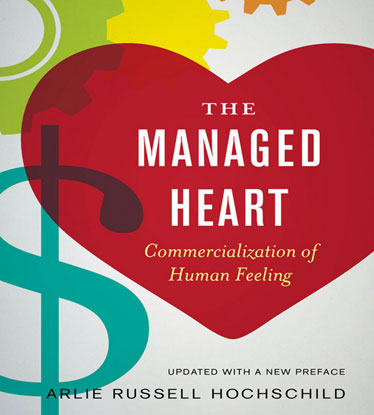
In The Managed Heart Arlie Hochschild, a Professor Emeritus at the University of California, Berkeley, defines emotional labor in terms of managing your feelings for your job, especially within the service industry (being happy at all times, polite at all times, etc.).
People that engage in relationships are doing a form of emotional labor that people get paid to do all the time.
What do I mean by that? First, there are a whole array of intimate services for pay exists: professional cuddlers, therapists, sex workers, escorts, strippers.
While clients know these services are commodities that they pay for, they want the exchange to feel ‘authentic’. That is where emotional labor comes in.
But in addition to these explicitly emotional professions nearly every employee is paid in part because of the emotional connection they make with supervisors, clients, coworker, and other stakeholders in the operation including in most cases the public at large.
Think how often you go to a particular restaurant because of your emotional connection with the staff there? The food may not be the best in town, but the atmosphere and service make up for it.
The most successful companies like Google, Apple, and Starbucks understand the value of emotional connection and work hard at all levels of the company to make these various emotional attachments.
They understand that positive emotional attachments helps them increase productivity and grow their market share.
Yes, Google has to provide good search results; Apple has to provide great hardware; and Starbucks has got to serve a decent cup of coffee, but they make a substantial amount of money off of the emotional attachment their customers have to the company.
They call it branding and today branding is a multibillion dollar business, so the emotional and financial worlds are tied much closer than we generally accept.
All relationships contain emotional labor and economic exchange troubling the idea that a relationship is a ‘scam’.
However, people need to define for themselves the types of boundaries and exchanges they feel comfortable making within a relationship.
Yes, international dating is more open about the connection between emotional attentiveness and financial wellbeing than is common in American society, but this does not mean that international dating is a scam or that in fact the international dating paradigm is an inappropriate foundation on which to start a serious long-term relationship.
The Importance of Emotional Labor
As mentioned earlier, Arlie Hochschild, a professor Emeritus from Berkeley, discussed the importance of emotional labor within the service industry.
Emotional labor is about managing one’s feelings and expressions to fulfill the emotional requirements of a job, thus, it serves as a crucial component of the service industry, as the service industry tends to preach that the customer is always right.
Therefore, people working with the public must manage their emotions with clients, their co-workers, and their superiors. Jobs that require emotional labor are defined by three characteristics: they require contact with the public, require the worker to produce an emotional state in others, and allow the employer to exercise a degree of control over their employees’ emotional activities.
Numerous industries are dependent upon their employees’ emotional labor in order to be successful. Call centers, doctors, wait staff, bartenders, flight attendants, and retail employees all utilize emotional labor on a consistent basis. Emotional labor has become increasingly commodified within the global marketplace.
Emotional Labor In The Economy At Large
Numerous scholars have tackled the issue of emotional labor in various professions, discussing the importance of emotions within the larger economy.
For example, Kristen Barber, an Assistant Professor of Sociology at Southern Illinois University, published a look at the emotional labor women provide to men in hair salons in her book Styling Masculinity.
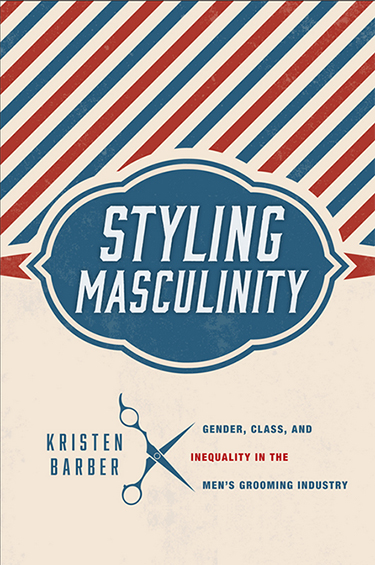
Beyond emotional labor, Eileen Boris, a Professor of Feminist Studies at University of California Santa Cruz, and Rhacel Salazar Parreñas, a Professor of Sociology at the University of Southern California, define the concept of “intimate labor” as labor that is focused on caring for other people, both paid and unpaid.
Thus, intimate labor is necessary for human survival. It is important to remember that intimacy occurs in a social context; thus, intimacy both shapes, and is shaped by, relations of race, class, gender, and sexuality.
By joining the concepts of intimacy and labor, Boris and Parreñas are challenging the separation between home and work, and work and labor that has characterized globalization. Intimate labor moves beyond controlling one’s emotions and delves into the realm of bodily work as well.
Therefore, intimate labor includes bodily and household upkeep, touch, personal and familial maintenance, and sexual contact.
Sexual Labor
Within the commodified market of intimate labor, the most controversial component of this labor is sexual labor and work. While early portrayals of sex workers focused on servitude, bondage and a narrative of trafficking, recent scholarship has been challenging the notions that all sex workers are forced into this work against their will.
Kemala Kempadoo, an Associate Professor at York University in Canada, published the book Sexing the Caribbean that shows most people engage in sex work informally in order to make ends meet.
Sexual labor is not always their main source of income, and instead provides supplemental income. We see this increasingly online as well, as more people have access to advertising sexual services while maintaining other forms of employment.
Part of the work that sex workers perform includes appearing to be authentically interested in their clients. Elizabeth Bernstein, Associate Professor at Barnard College, argued in her book Temporarily Yours that these encounters are in fact authentic, but they are temporary and bounded by many constraints.
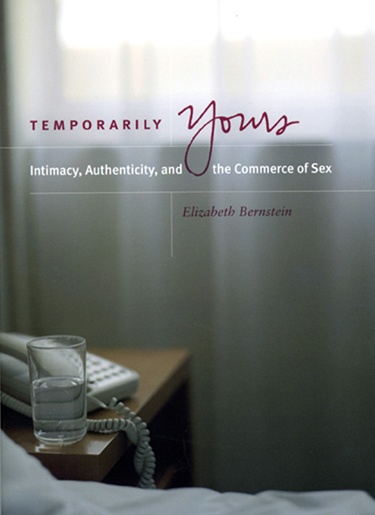
She examines the increasing popularity of the ‘GFE’ or girlfriend experience to demonstrate that sexual labor includes much more emotional and intimate caring work then previous forms of sex work have in the past.
For this reason, Bernstein argues that we see intimate and emotional labor moving from the realm of private, domestic life to the realm of the economic marketplace.
The common image of a sex worker as a drug-addicted streetwalker is naïve and not the case for most involved in the sex industry.
Besides sexual work as escorts, strippers and hostesses also engage in important intimate labor with their clients. Strippers and hostesses perform important labor in facilitating business negotiations between male clients.
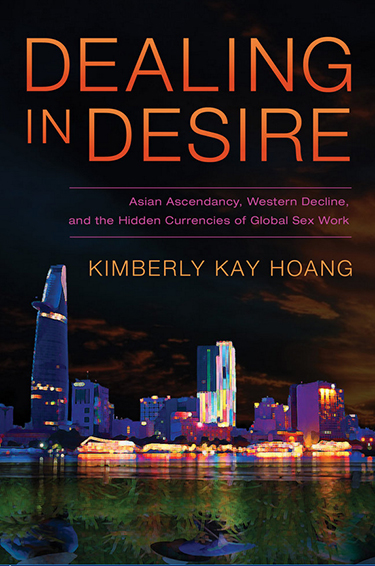
Dealing in Desire by Kimberly Kay Hoang, an Assistant Professor at the University of Chicago examines the important labor that high-end sex workers do in encouraging economic development in Vietnam.
Anthropologist Katherine Frank worked as a stripper and uncovered the large amounts of emotional labor that go into cultivating long term clients in her book G-Strings and Sympathy: Strip Club Regulars and Male Desire. Therefore, commercialized relationships belong on a spectrum of intimate labor.
Where Does This Put International Dating?
Within the PID industry, men are searching for a certain type of emotional labor as well. In my article on the industry, (https://muse.jhu.edu/article/653243/summary), I argue that men are often looking for a traditional wife that will perform the emotional labor of selflessness in a marriage.
The men I interviewed during my own research on the PID industry consistently explained to me that they were looking for a traditional woman that still wanted to do things for her husband as labors of love.
Many more men wanted to feel like the number one priority in their wives’ lives. For this reason, they wanted a woman interested in staying at home, as careers detract from the quality of care they expect from a partner.
In that sense, I think it is good for men interested in finding a wife abroad to think about the types of emotional labor they are expecting from a partner and be clear with those desires. I know a woman who agreed to stay home when she married an American, but is bored and lonely now that she stays inside all day.
Make sure both parties are clear about what types of labor each one is willing to perform. Recognize that caring for someone is labor, even if it is a labor of love. We need important nurturing care throughout our lives, and we are willing to pay for it when it comes to children and the elderly.














